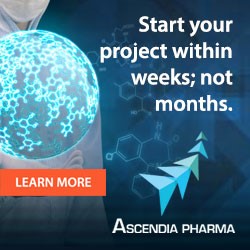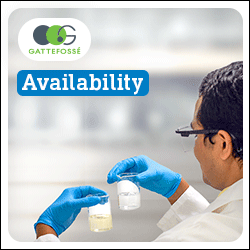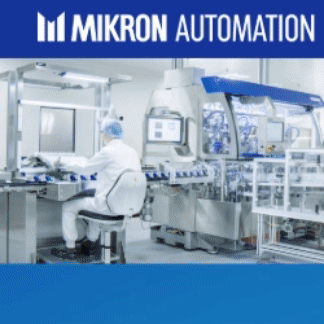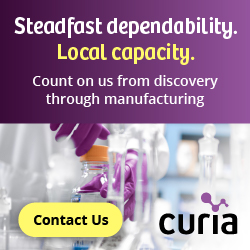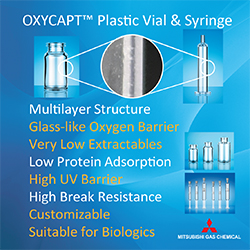Adagene Announces Clinical Trial Collaboration to Evaluate Anti-CTLA-4 SAFEbody ADG126 in Combination With Roche’s Standard-of-Care for First-Line Advanced Liver Cancer
Adagene Inc. recently announced a clinical trial collaboration with Roche to evaluate the triple combination of Adagene’s ADG126 with Roche’s atezolizumab and bevacizumab in first-line treatment of advanced hepatocellular carcinoma (HCC; liver cancer). The collaboration will utilize Roche’s MORPHEUS-LIVER platform for rapid and efficient combination development.
Under the collaboration, Roche will sponsor and conduct a randomized Phase 1b/2 multi-national trial to evaluate the efficacy, safety and pharmacokinetics of ADG126 in combination with bevacizumab and atezolizumab, versus atezolizumab and bevacizumab alone, initially in 60 patients. Each company is supplying its respective anti-cancer agent(s) to support the trial. Adagene will retain global development and commercialization rights to ADG126. Additional financial details of the collaboration were not disclosed.
This study expands Adagene’s global clinical development program for ADG126 into a new setting and tumor type as a potential component of first-line combination therapy for HCC, where current anti-CTLA-4 therapy has demonstrated statistically significant clinical benefit in combination with anti-PD-1/PD-L1 treatment. Results of ongoing phase 1b/2 clinical trials have demonstrated a compelling, differentiated safety profile for ADG126 at doses up to 20 mg/kg with repeat dosing as monotherapy and up to 10 mg/kg in combination with anti-PD-1 therapy. With its unprecedented safety profile, encouraging anti-tumor activity and ability for repeat dosing, ADG126 is well suited as a combination agent designed to improve patient outcomes.
“We are excited to initiate this collaboration with Roche and explore the potential of ADG126 as a key component of a triplet combination for treating first-line liver cancer, along with an established standard-of-care doublet pioneered by Roche,” said Peter Luo, PhD, Co-founder and CEO of Adagene. “Given the longstanding safety challenges of combining multiple therapies in this cancer type, we are very excited to bring forth a potential anti-CTLA-4 treatment with an unprecedented safety profile in an immunotherapy-based triplet combination as a promising strategy to treat liver cancer patients, where two first-line therapies have already received FDA approval.”
SAFEbody technology is designed to address safety and tolerability challenges of many antibody therapeutics by minimizing on-target off-tumor toxicity in healthy tissues. ADG126 SAFEbody applies this precision-masking technology to the parental anti-CTLA-4 antibody, ADG116, for conditional activation in the tumor microenvironment (TME) to expand the therapeutic index and further address safety concerns with existing anti-CTLA-4 therapies.
Binding to the same distinct and highly conserved epitope as ADG116, the masked ADG126 is designed to provide enhanced safety and efficacy profiles due to the combination of the potent Treg depletion in the TME and partial ligand blocking by the activated ADG126, which is accumulated steadily for the prolonged tumor killing effect.
Liver cancer is the fifth most common cancer and the second most frequent cause of cancer-related death globally, with 854,000 new cases and 810,000 deaths per year. Hepatocellular carcinoma (HCC) is the most prevalent form of primary liver cancer and represents approximately 90% of all primary hepatic malignancies. Up to 80% of patients first presenting with HCC have advanced unresectable or metastatic disease because of the late appearance of symptoms. It is a medically complex and difficult-to-treat disease as the majority of patients with HCC have underlying cirrhosis requiring management of both the malignancy and the cirrhosis. In the US, the 5-year overall survival (OS) rate of patients with HCC is 17%, while in China, the 5-year OS rate of patients with HCC is 10.1%. HCC is a highly lethal disease with the highest mortality-to-incidence rate ratio of 0.98 of any solid tumor. The WHO estimates that more than 1 million people will die from liver cancer in 2030, highlighting a significant global public health issue.
Adagene Inc. is a platform-driven, clinical-stage biotechnology company committed to transforming the discovery and development of novel antibody-based cancer immunotherapies. Adagene combines computational biology and artificial intelligence to design novel antibodies that address unmet patient needs. Powered by its proprietary Dynamic Precision Library (DPL) platform, composed of NEObody, SAFEbody, and POWERbody technologies, Adagene’s highly differentiated pipeline features novel immunotherapy programs. Adagene has forged strategic collaborations with reputable global partners that leverage its technology in multiple approaches at the vanguard of science. For more information, visit https://investor.adagene.com.
Total Page Views: 654




